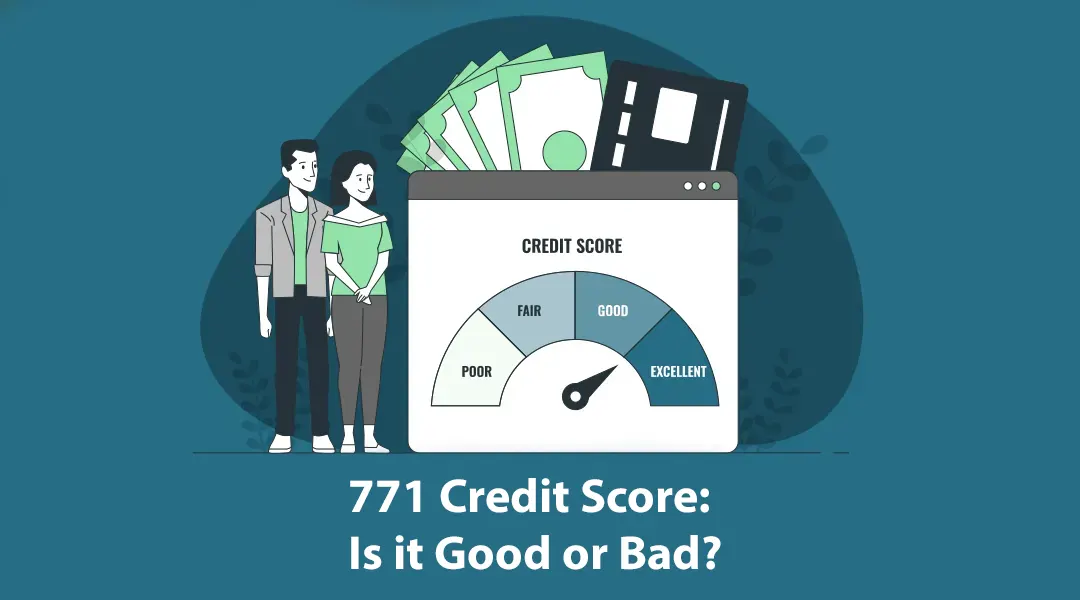A credit score of 771 is frequently regarded as excellent or very good. If you have a credit score that is very good or excellent, you might be able to get a mortgage, a car loan, or a credit card with rewards and other perks more easily. This is due to the possibility that having a high credit score suggests that you are less risky to lend to.
This three-digit indicator, which is calculated from all of the information in your credit reports, is used by lenders to determine how likely they are that you will default on your loans. The higher your score, the more attractive you are to a lender.
Table of Contents
High Credit Score: Immediate Loan Approval
Yes, a credit score can be a significant consideration when applying for credit. However, you actually have multiple credit scores based on information from your various credit reports with the major consumer credit bureaus (Equifax, Experian, and TransUnion). Each score uses data from your various credit reports. A credit score may be deemed “excellent” by one scoring model but calculated differently by another model, which weighs various factors differently, resulting in a completely different score.
Additionally, lenders and scoring models may have diverse definitions of what constitutes “excellent.” Additionally, lenders typically take into account non-scoring factors like your income and employment status when deciding whether or not to give you credit.
This indicates that even though having excellent credit is a positive indication that you already have a healthy credit profile, it is still essential to comprehend the factors that influence a 771 credit score in order to preserve your hard-earned credit.
How to Get a Credit Score of 771?
Is a credit score of 771 good? Yes, you might be curious about how to get a particular credit score, but there is no exact formula for getting that perfect number.
There are typically five factors that make up the scoring when it comes to overall building excellent credit.
- Credit Utilization
- Payment History
- Length Of Credit History
- Credit Mix
- New Credit
Without accruing a significant amount of credit card debt, individuals with excellent credit ought to be able to demonstrate a significant track record of on-time payments across a variety of credit types.
So, whether you’re happy with your score and thinking is a credit score of 771 good or bad now or want to get to 800, here are some things to keep in mind as you move on with your credit journey.
Install autopay
Even the most savvy people occasionally forget due dates, especially if they have multiple credit cards to manage. Yes, I have! However, even one late payment could have a negative impact on your credit scores. As a result, we suggest setting up automatic payments for all of your bills.
Early payment
The credit bureaus typically report the statement balance at the end of each billing cycle, even if you pay your credit card bill in full by the due date. Your credit utilization ratio could fluctuate unexpectedly as a result, which could lower your scores. Before the end of your billing cycle, we recommend manually paying off your entire account balance so that it is reported as zero. If you haven’t been doing this before, you might start to see a big improvement in your credit score 771.
Adding a loan to your credit profile
You might have been told that lenders want you to manage a mix of installment loans and revolving credit. It’s nice to show that you can balance all types of credit, but it doesn’t make sense to apply for a loan you don’t need and then pay interest on it just to get more credit. Over time, let it happen naturally.
However, you shouldn’t be afraid to apply for new credit cards sparingly. The challenging question may initially result in a slight decrease in your scores. But in the long run, getting a new credit card might help you get more credit, which might make your credit utilization ratio go down.
Additionally, the longer you keep it open, the more it may assist in extending your credit history. Regarding that, don’t just close old credit cards because you no longer use them. Having open old credit cards can help you build a longer credit history. Of course, there is always a rule that doesn’t apply, and if your old card has a high annual fee, you’ll have to decide whether to keep it open or close it based on how much it hurts your score.
Auto loans for people with excellent credit
Having excellent credit may increase your chances of being approved for the lowest-rate auto loans, but it is still not a guarantee.
To find the best loan terms and rates available to you, it is essential to shop around and compare offers. Rates offered by dealerships may be higher than those offered by banks, credit unions, or online lenders, even if you have excellent credit.
Using our auto loan calculator, you can determine the impact of these various rates and terms on your monthly payment.
Also, before deciding on a car loan, think about getting preapproved. When negotiating the price of your vehicle at a dealership, a lender’s pre-approval letter can be helpful, but be aware that it may involve a difficult inquiry.
If you have excellent credit, it might also be worth looking into refinancing an existing auto loan. If your credit has improved since you first financed the car, you might be able to get a better rate.
Final Thoughts
From a practical standpoint, you should be able to get the best mortgages, loans, and credit cards because of your excellent credit.
It’s possible that you’re content with your high scores and don’t see any financial reason to get any higher. However, knowing that you put in a lot of effort to achieve an 800 credit score may give some people a sense of credit accomplishment.
You might want to think about setting up autopay, paying off your credit card balance before the end of the billing cycle, and keeping your old credit cards open, even if you don’t use them very often, if your goal is to reach the top of your credit score.




